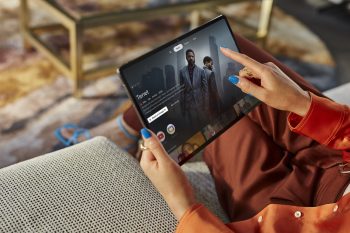
Learn How You Can Block any Website to Remain Focused During Work
How many people do you know who get to work or start work at their home office and immediately begin the first task of the workday? –Probably very few. Most of us fiddle away the first hour or more on things that are certainly not essential. We check sports scores, read the news, check out a friend’s Instagram pics, etc. Digital disruptions that eat up time and decrease productivity are everywhere. Tablets, smartphones, and laptops offer oh-so-many opportunities to go down rabbit holes of distraction – but it’s going to get worse. Very soon you’ll be hard-pressed to find any type of electronic thing – including your refrigerator – that’s not connected to the internet. The cool part about this future is obvious. Your refrigerator could send you a message to buy eggs after sensors notice you’ve run out. Your smartwatch could show everything from your heartbeat to how the S&P 500 is doing. These are all great developments, but they also point to an already distracted world becoming even more distracted. There are now so many ways to get information from cyberspace that an increasing number of people say they are having difficulties concentrating on work or school projects. And, many now report they have serious concerns that their productivity – especially in the workplace – is falling.
But you don’t have to be trapped in the web. In an ironic twist, there are tech solutions that can help you avoid digital distractions – and the best place to start is with a site blocker. So-called blocking apps have become incredibly popular over the past few years as they are free to download and easy to install. The blocking app syncs across all of your devices and you can then set limits on what kind of information you want to receive and at what times. You can block specific websites for specific times. You can block notifications. Many people admit they waste a lot of workday time on social media. But if a blocking app is installed across your devices and you tried to access, for example, Facebook during a time it was blocked, a message would appear saying, “Sorry! That site is blocked!! Get back to work!” This small notification is usually all we need to get back on track. And, remember, all of these blocking choices are yours. Those trying to finish a task that requires serious single-mindedness – such as a report or a novel – could even use a blocking app to completely block the internet for a few hours. That way, the only thing you can use your computer for is work… your laptop is now a good old-fashioned word processor. Blocking apps are a tool that can start helping you reclaim your time and help all of us begin strengthening our digital discipline muscles.
And we all really need to get better at digital discipline as, of course, the distractions are only set to grow. If you don’t already have a smartwatch there’s a good chance you’ll be picking one up in 2022. A flagship Google smartwatch is rumored to be coming very soon and will obviously pair with any Android phone. Also, expect Samsung to release the Galaxy Watch 4 in ’22 as both companies try to give Apple a run for their money… which we predict they will be successful in doing. Plenty of other great tech is coming this year as well: smart rings packed with sensors, smart glasses that play audio via bone conduction speakers, as well as take photos and record video. And the use of AR and VR in daily life is just around the corner. It is becoming almost impossible to escape the internet as it intertwines into basically everything. Some people will find all of these developments great… but there is a huge potential downside: digital overload.
How much information becomes too much information? Digital distractions are detrimental to focusing on a single task, which is the only way to get stuff done efficiently. It’s nice to know your blood pressure or heart rate, but if getting that information causes you to lose your train of thought and becomes a distraction, this ‘useful’ data may not be that useful at all. The problem with all of these notifications and alerts is that they cause us to task-switch. Many of us think we can do more than one thing at a time, but in reality, psychologists say our brains merely switch tasks at a very fast rate which drains your energy and limits creativity and productivity. We need to begin re-training our brains to focus and start re-learning the art of concentration. Muscles don’t build themselves. Digital discipline is a muscle that needs to be exercised to grow. While it’s cool to get excited about a future of almost total connectivity, now is the time to strengthen our resolve and improve productivity… and a great place to start is by blocking websites that we know are hindering us from being more productive at work.